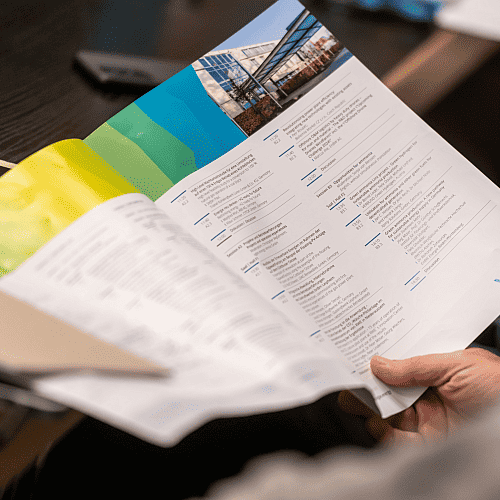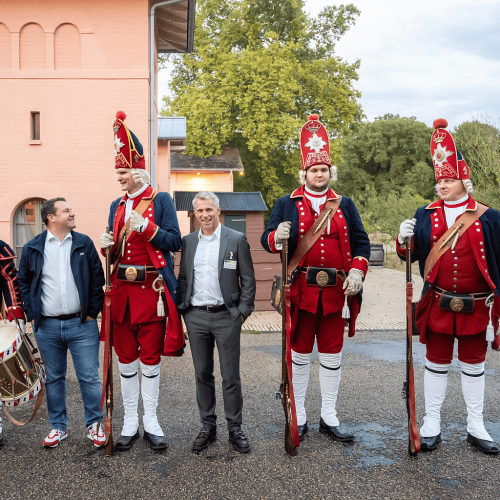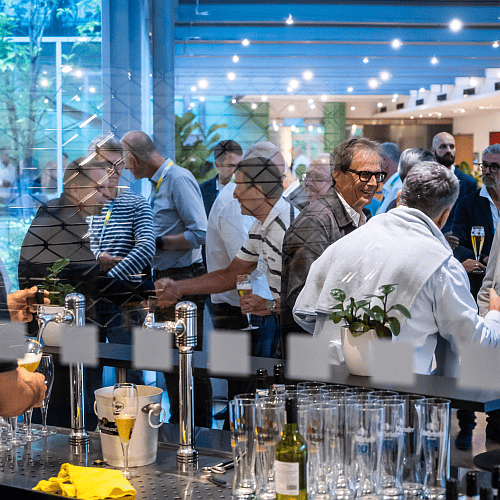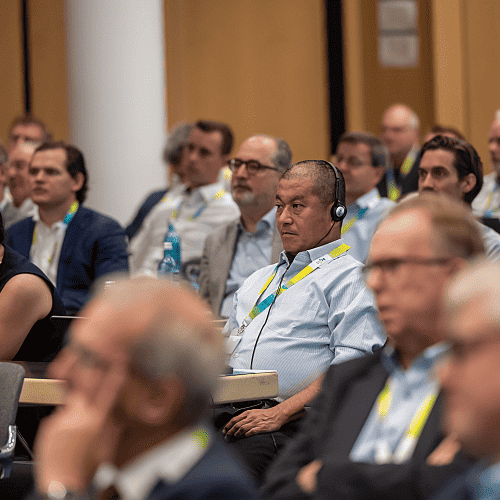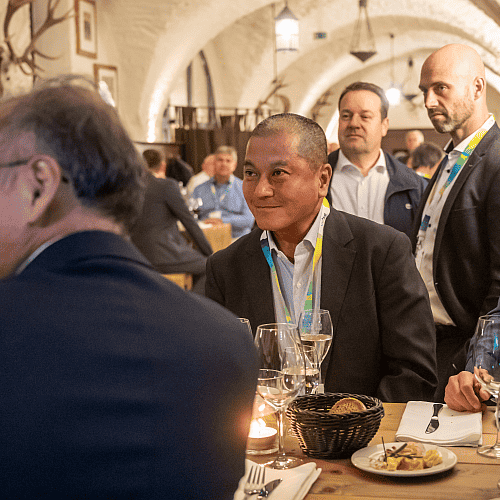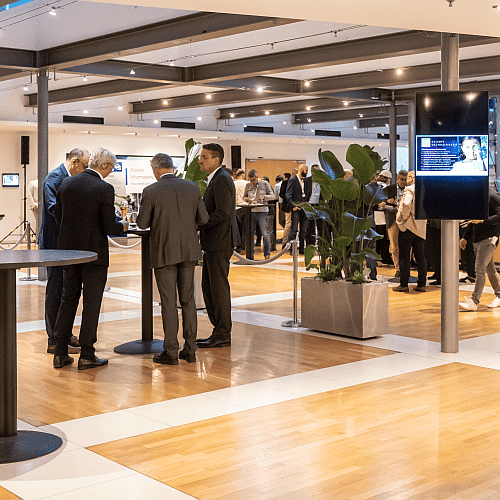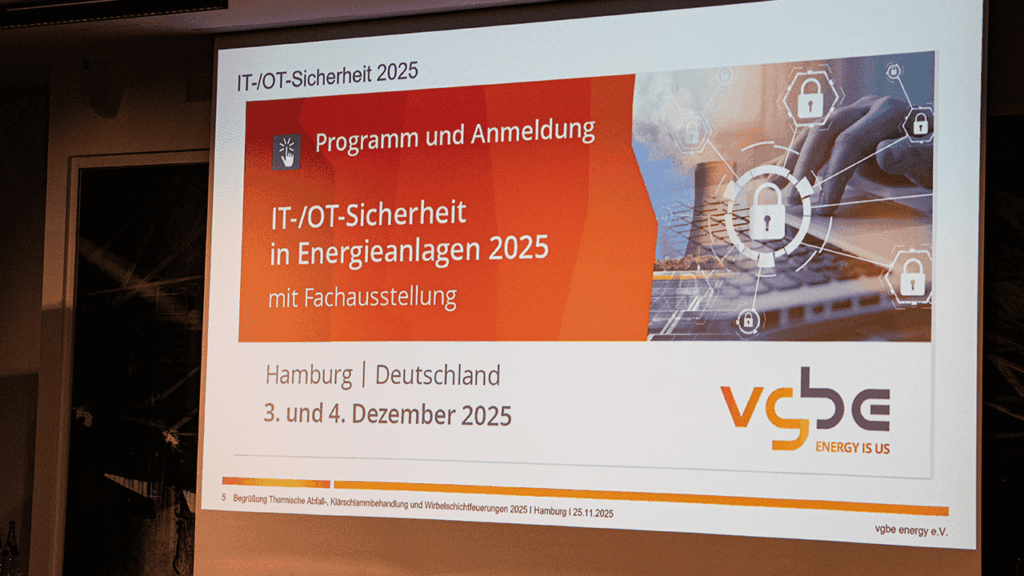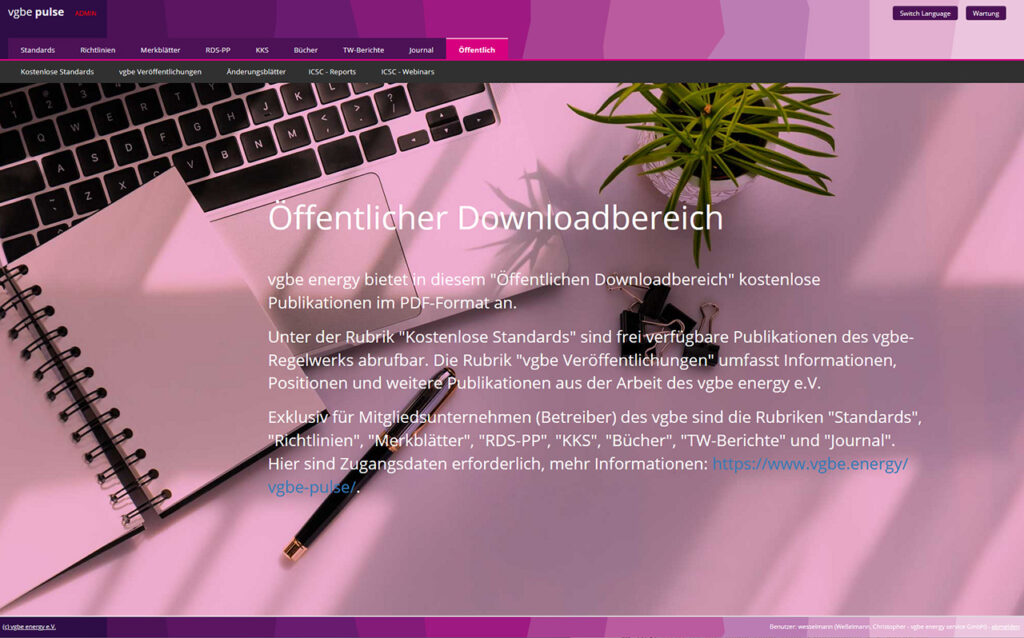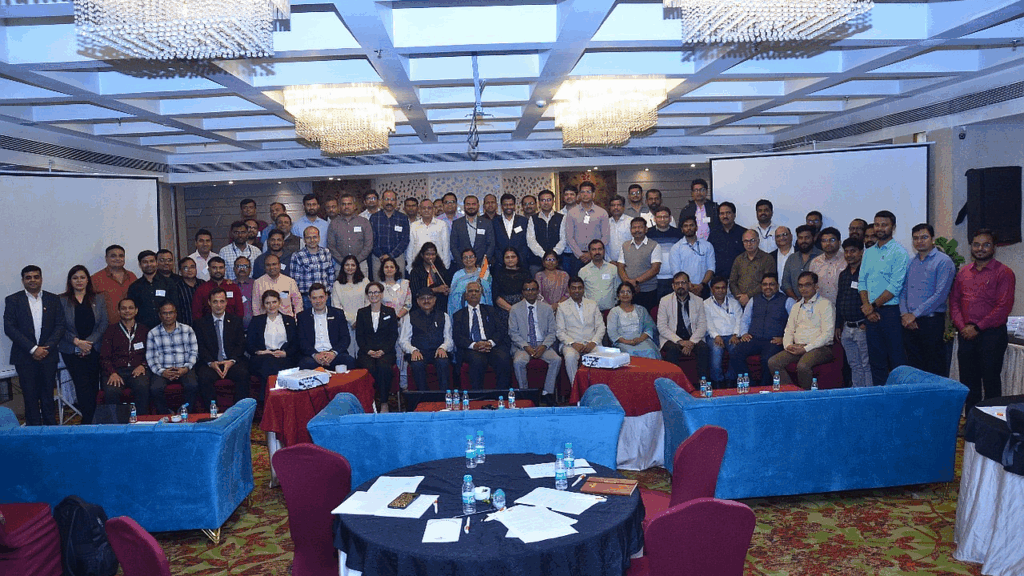This year’s vgbe Congress 2024 was held under the motto “Energy transition and supply chain challenges – mission impossible?”. Following the tradition, the Congress was opened by the Chairman of the vgbe Board, Dr Georg Stamatelopoulos. In his speech, he addressed the main aspects of the energy transition, such as capital requirements, political framework conditions and challenges in supply chains and the shortage of skilled personnel.
Dr Stamatelopoulos emphasized that the energy sector had contributed to climate protection and renewable electricity generation over the past year, with approximately 74% of electricity generated EU-wide from climate-friendly sources in the first half of 2024. He explained that the energy transition was one of the largest and most important collective projects and that it was crucial to focus on the advantages of a climate-friendly energy supply which required bold, sustainable decisions that could garner broad acceptance. At the same time, the costs for energy consumers had to remain affordable, and supply security must be ensured.
However, the lack of reliable political framework conditions – in Germany e.g. the power plant strategy – remained problematic, as these were urgently needed to implement the necessary projects promptly.
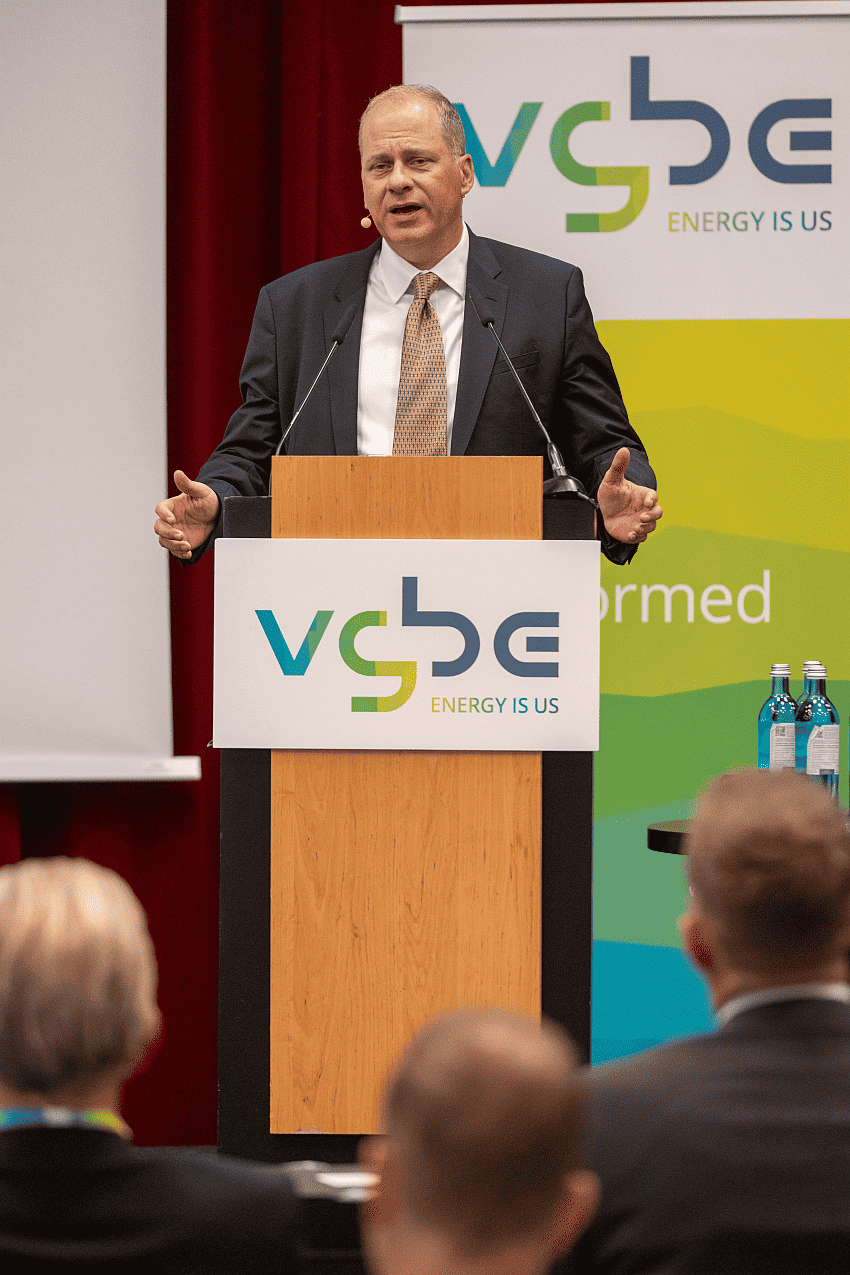
Regarding vgbe’s activities, the Chairman highlighted the new vgbe Competence Centre “Future Energy System”, which, as the “Home of New Technologies”, promotes and supports innovations in energy system flexibility, hybrid power plant concepts, energy and heat storage, energy efficiency, and hydrogen.
In addition to the technical services offered by vgbe energy service GmbH, which are an important part of vgbe energy e.V., Dr Stamatelopoulos emphasized the core of vgbe energy e.V., i.e. “Networking”. vgbe served as a platform for the preservation and exchange of know-how, and the vgbe Congress also aimed to foster exchange within the energy sector and provide personal inspiration.
Presentation of the vgbe awards
Following the opening, this year’s vgbe Awards were presented in the categories of Innovation, Quality and Health Safety.
Dr Stamatelopoulos was particularly delighted to award of the Golden vgbe Badge of Honor to Professor Klaus Görner. Until 2023, Professor Görner held the Chair for Environmental Process Engineering and Plant Technology at the Duisburg-Essen University and was active in the energy sector, including serving on the board of the Gas and Heat Institute Essen and Rhein-Ruhr-Power e.V. Since 1999, he has been a member of the vgbe Scientific Advisory Board, where he later also served as Vice-Chairman. He was also a member of the board of trustees of the vgbe RESEARCH FOUNDATION and the programme committee for vgbe Congresses.
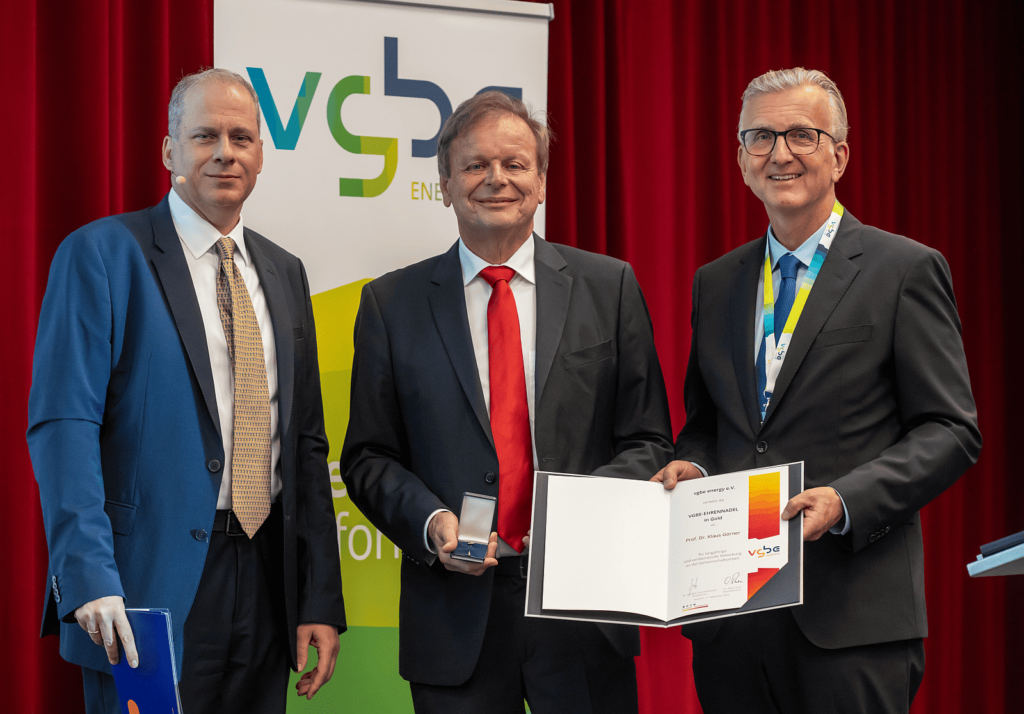
(f.l.t.r.: Dr Georg Stamatelopoulos, Prof Klaus Görner, Dr Oliver Then)
Professor Görner was involved in numerous research projects and placed great importance on economical and technology-neutral energy supply. The education and promotion of his students, whom he encouraged to approach technology with openness and to develop independent decision-making skills, were especially close to his heart. His support for vgbe energy was always marked by great commitment and a high level of expertise.
The programme continued with plenary lectures on the latest developments in European and German energy policy, as well as a keynote speech by Dr Frank Umbach on the topic “European supply chain challenges – bottlenecks in energy and materials”.
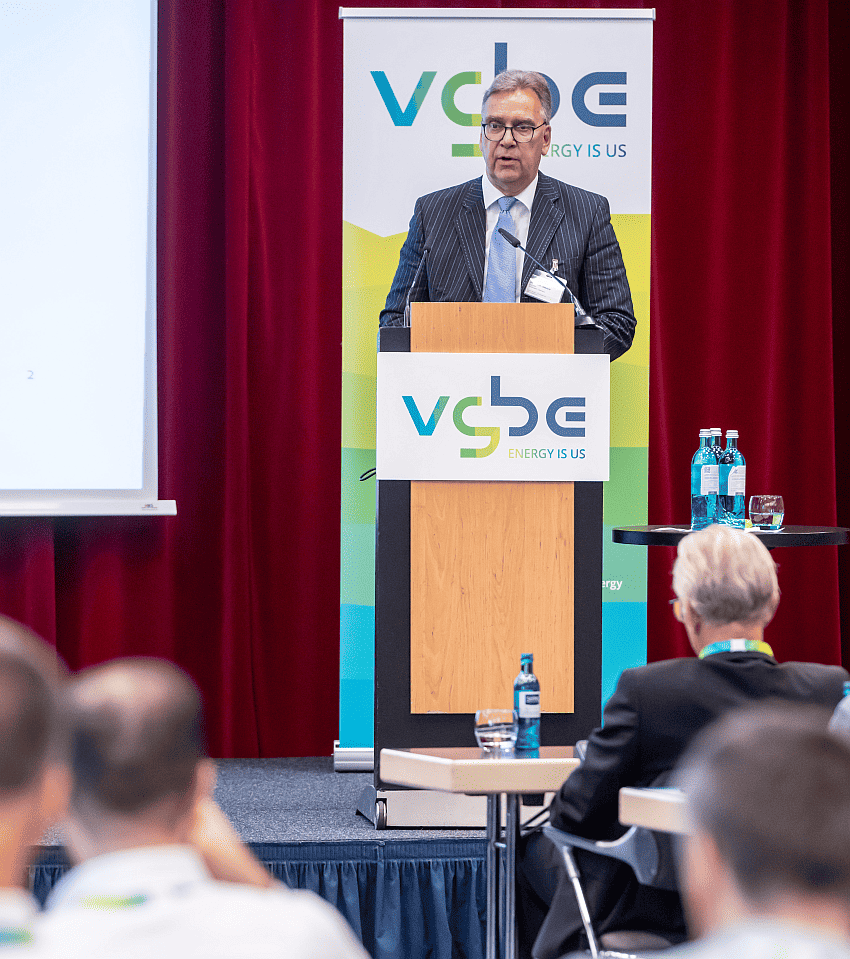
Head of Research Eurepean Centre for Energy and Resource Security (EUCERS)
It was pointed out that German and European economic and foreign policy had so far lacked a holistic approach, leading to security, economic, and energy policy dependencies that must now be overcome. Frank Umbach summarised that the focus must now be on balancing sanctions and supply chain risks, ensuring diversification of critical raw materials (CRM), and expanding their extraction across the EU. He concluded with a call for geopolitical considerations and risks to be incorporated into business decisions, as these factors could influence weaknesses in organisations and supply chains and endanger national and EU-wide economic security.
These issues were explored further in the panel discussion “Challenges in the supply chain from a European perspective”. It became clear that the energy transition brings with it a variety of diverse but closely interlinked tasks and challenges. To achieve ambitious climate protection goals and ramp up a green hydrogen economy, numerous hurdles have to be overcome. Adequate procurement and production capacities are needed, as well as appropriately trained professionals in production companies, authorities and administrations.
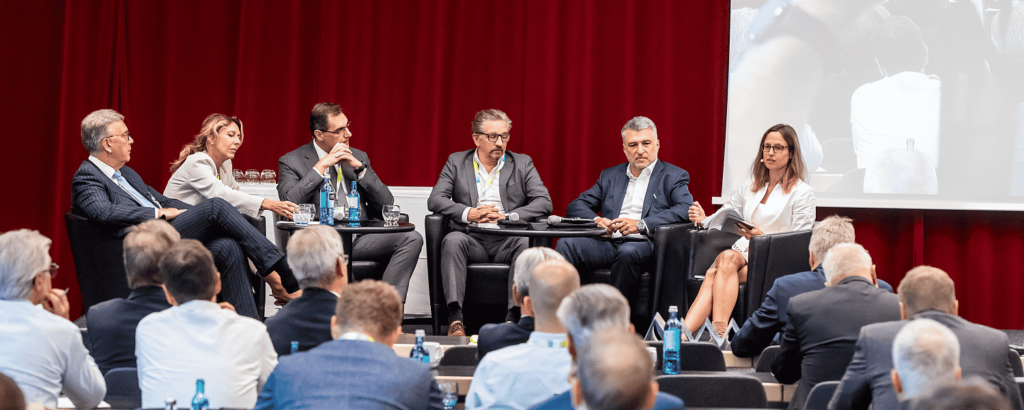
The second day of the Congress focused on technical issues. In two parallel sessions, presentations were given on topics such as the use and readiness of H2, the role of green gases, the optimisation of operations and maintenance (OM), the decentralised use of hydrogen and the utilisation of digitalisation. Particularly interesting was the presentation by Professor Klaus Görner on “Green future for existing power plants – what alternatives do alternative fuels offer?”. The possibilities for the partial or complete substitution of coal by natural gas, LNG, syngas, hydrogen, and ammonia were thoroughly analysed by him.
Other contributions on H2-ready projects, such as Mats Björkman’s presentation on the Siemens Energy SGT-800 gas turbine and Reihaneh Zohourian’s presentation on the “H2-Wyhlen” pilot laboratory, were discussed in depth. Despite lacking political framework conditions and resulting lacking economic efficiency of nearly all projects presented, both nationally and at the EU level, there was an overall positive sentiment in the industry. Operators, manufacturers and service providers are ready to actively tackle the challenges.
As highlighted in the opening speech, vgbe stands for “Networking”. This aspect was well-represented both at the get-together on the evening before the event and at the evening gathering. Participants also had the opportunity to take photos with the “Lange Kerls”, the historical representatives of a unique unit of the Prussian army. The evening concluded with professional and personal exchanges at Krongut Bornstedt.
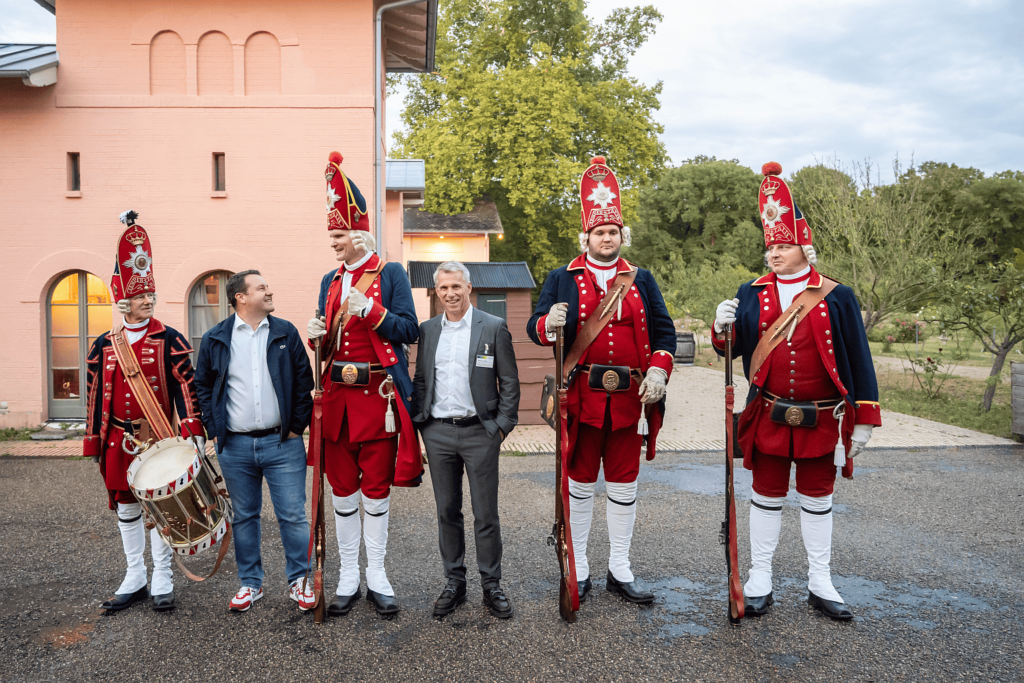
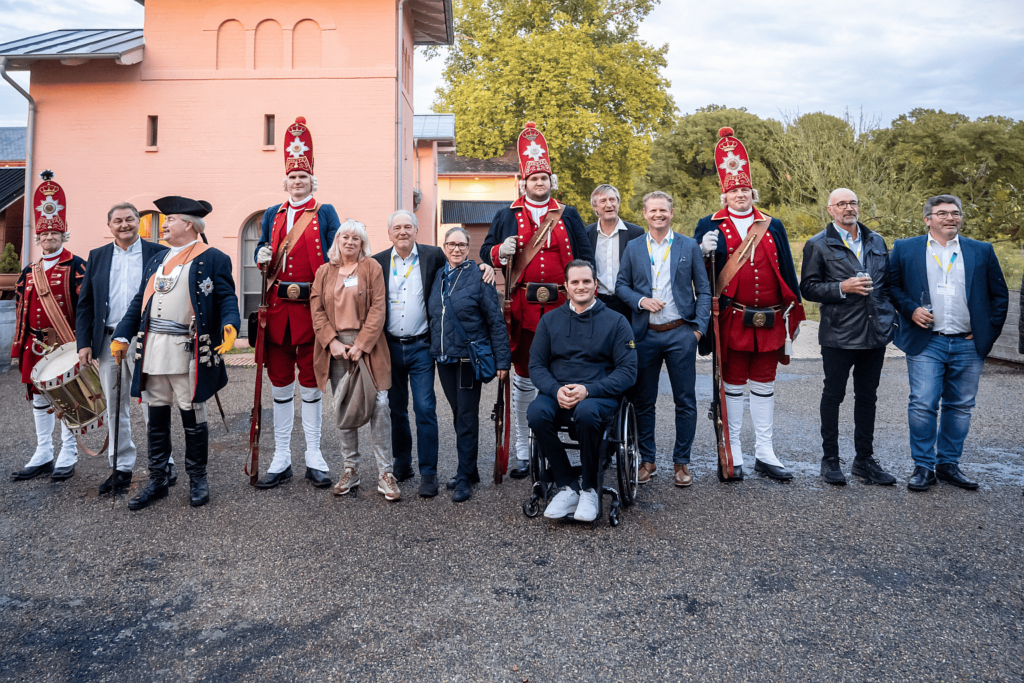

The vgbe Congress team thanks all speakers and participants for a successful event and looks forward to the next vgbe Congress, which will be held from September 24 to 25, 2025 in Vienna.
